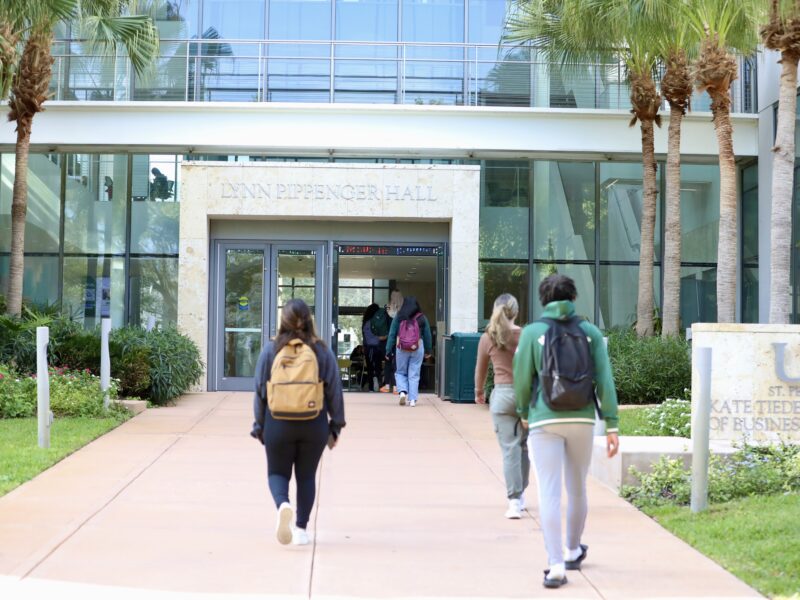Saving money as a college student may seem like a far off goal. With tuition fees, books, food and other living expenses, many students barely have enough to get by, let alone save any money.
There are many common mistakes that college students make with money, according to the Federal Deposit Insurance Corporation. Acquiring too many credit cards, paying bills late and buying unnecessary things often cause students to go too far into debt. Also, not taking responsibility for finances is another common mistake. By being careless with PIN and social security numbers, students open themselves up to theft and fraud.
Dr. Bob Fisher, an adjunct of marketing in the College of Business, teaches a career empowerment course with a session dedicated to wealth creation. In the class, he emphasizes that wealth creation is more important than a high salary. Spending, investing and taxes play an important role in this wealth creation.
Along with his career course, Fisher also designed a website, collegecareerlifeplanning.com, which has modules for education planning, career planning and life planning, along with a section for parents and teachers. In the life planning section is personal finance, where students can learn how to track spending, budget and other tips for money management.
The USF Federal Credit Union also has educational information on its website, creditunion.usf.edu, informing students about basic money management skills. It has information on budgeting and saving, debit and credit cards, bank accounts, credit scores and lending, spending and the whole free enterprise system.
Based on the modules and education tools from both websites, here are some of the best tips for money management in college.
- Set up a budget for yourself—minus the tuition and books: You can’t control the cost of tuition and books, but you can set up a limit for daily and monthly spending to keep you from overspending.
- Be smart about credit cards: Having one or two is fine, but if you have too many, you can easily lose track of your debts and incur penalty fees.
- Learn to cook: Going out to eat all the time, even at fast food places, can get pricey. By grocery shopping for a week you can save a lot more money. Spending almost $20 a day on food at restaurants can add up to more than $140 a week if weekends are included. If you spend $100 at the grocery store every week, you’ll save money and have leftovers for the next week.
- Campus activities: Most campus activities are free or cheap. USFSP often hosts cookouts, holiday-themed parties, movies and many other activities on Harbor Walk.
- Hit up the discounts: Being a college student has its perks, like discounts at many of the restaurants and stores near campus. Movie theaters give student discounts on weekdays and many restaurants and bars downtown give students reduced prices on their products or services.
- Be careful with the necessary evils: You often can’t avoid the high cost of tuition and books, but getting scholarships and financial aid can ease the pain. Fill out and submit a FAFSA every year by the deadline to be eligible for federal aid, and apply for as many scholarships as possible. If it comes to having to take out a student loan, read into the interest rates for the ones being offered to you and only take what you will need.
- Buy used books: The campus bookstore often has a limited supply of used books, and they can still be expensive. Looking elsewhere for books, or even renting them instead of buying, can save you hundreds of dollars. Also, as soon as you get your class schedule and book list for the next semester, start looking for the required books. Websites and stores often have textbooks severely discounted at the end of semesters.
- Don’t overindulge: You’re attending college to get a higher education, so live like that is a priority. Don’t go overboard with excessive shopping trips, vacations or partying. Manage your time and money wisely.
- Other useful tips: Avoid ATM fees by using the ATM at your bank, bike or walk to class, if possible, instead of taking your car and split living costs with roommates.


